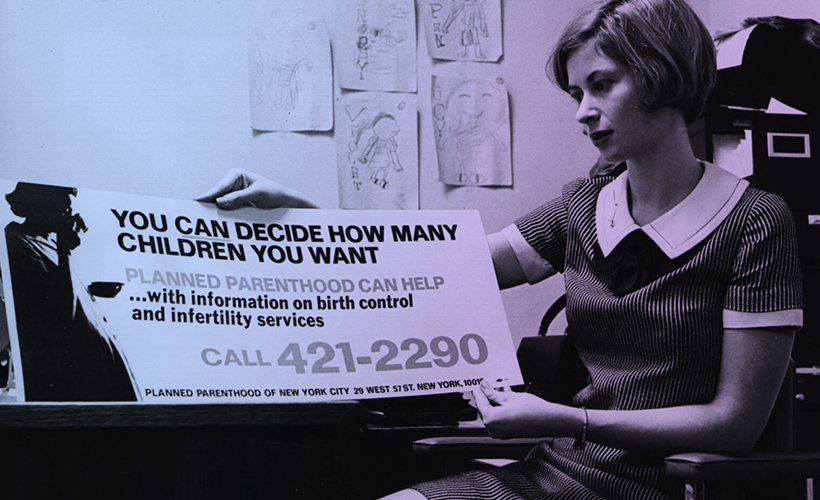Should contraception be legal and easily accessible? Be sure to check out Issues & Controversies in History’s complete and unbiased coverage of this issue. Learn more about the issue and check out a sample of the pro/con arguments on both sides below.
Try Issues & Controversies in History today!
THE ISSUE
Throughout the 19th century, Americans used birth control with increasing frequency in order to limit family size. Yet various old and new laws made many forms of contraception illegal. The Comstock Act of 1873 even prohibited the sending of information about birth control through the U.S. mail until 1929. As oral contraceptives became available in the 1960s and the “sexual revolution” ignited, controversy grew. Should birth control be available to all women? Or should some—or all—types of contraception be illegal? And what should the role of physicians be with regard to family planning?
Arguments That Birth Control Should Be Legal and Easily Accessible:
Arguments That Birth Control Should Not Be Legal and Easily Accessible:
Supporters of legally and easily accessible birth control promoted it as a solution to the global problem of overpopulation—too high a birthrate in proportion to the planet’s limited resources. On the domestic front in the United States, this sometimes became an argument that birth control would help reduce the number of people receiving welfare or other forms of government assistance. Others emphasized that reproductive rights were key to an individual’s self-determination and part of a person’s right to privacy. Contraception would enable women, especially, to determine when and if they desired to become pregnant. Fully accessible, legal birth control would thus be liberating, by separating sex from reproduction. Some even claimed that birth control had individual health benefits. Most commonly, however, advocates of contraception held that parents could create more harmonious families—and closer relationships with one another—by limiting the number of children they had and choosing when to have them.
Opponents of legally and easily accessible birth control often cited religious reasons, arguing that contraception was sinful, immoral, and unnatural because it tried to assert human control over what was properly God’s domain. In the case of abortion, especially, this became an argument about a woman’s reproductive rights versus the government’s appropriate authority and the legal protection of human life. Other, secular critics of birth control distrusted newer types of contraception as medically unsafe and complained that women’s health was being regarded as expendable. Some political liberals also denounced certain forms of birth control—especially sterilization, abortion, and oral contraceptives—as being connected to racist state policies that coerced or forced poor women of color to cease having children. A feminist position against abortion emerged as well in the 1970s and 1980s, contending that the procedure was the misguided result of growing social pressures on women to be sexually active but childless.
Issues & Controversies in History links this pro/con article to rich related resources that enhance the debate. Students and researchers can delve into primary sources that provide context, a topic-specific timeline, a bibliography, and a thought-provoking “What if…” section that explores what might have happened had contraception become legal across states more quickly. Plus, discussion questions are provided to inspire critical thinking and analysis.
What Is Issues & Controversies in History?
Issues & Controversies in History places students at the center of the great debates and conflicts in U.S. and world history, exploring the issues as the key players saw them or, in some cases, as historians have interpreted them. This comprehensive reference database delivers dynamic, concise, and balanced coverage of a broad range of topics, from slavery, empire, and revolution to race, gender, economy, and disease, all over the globe. By building a deeper understanding of how historical events and conflicts have influenced U.S. and world history over the past 5,000 years, Issues & Controversies in History is a powerful tool for helping researchers analyze primary sources, answer document-based questions, and prepare for history debates and research projects.
Click here to take a free trial of Issues & Controversies in History.
See also:
- Kellogg-Briand Pact: A Historical Controversy from Issues & Controversies in History
- Equal Rights Amendment: A Historical Controversy from Issues & Controversies in History
- Proposition 6: A Historical Controversy from Issues & Controversies in History
- For Primary Sources, Make Infobase Your First Stop


